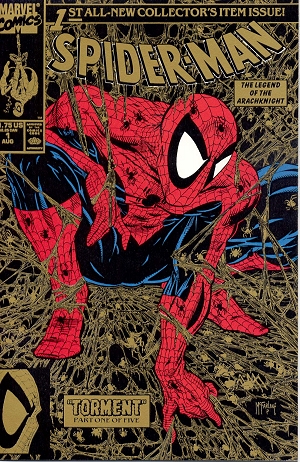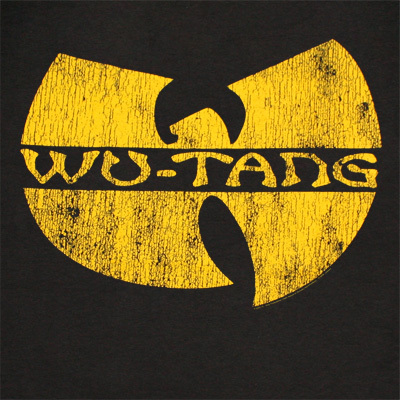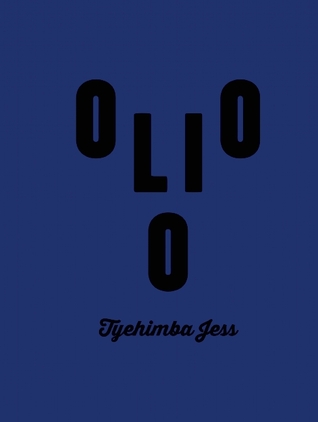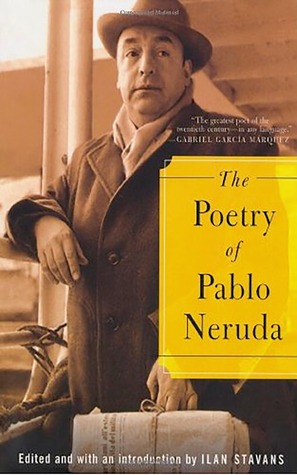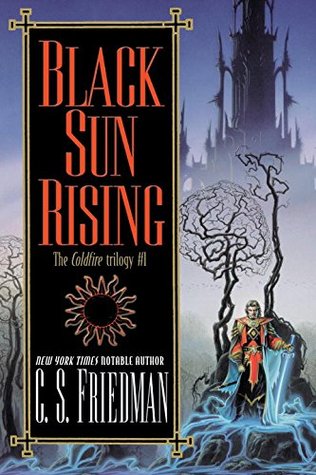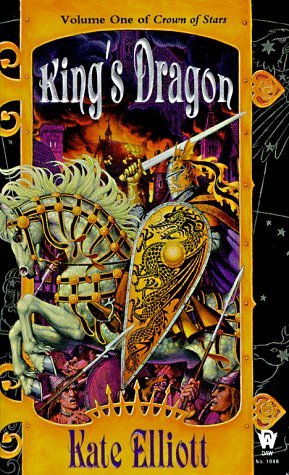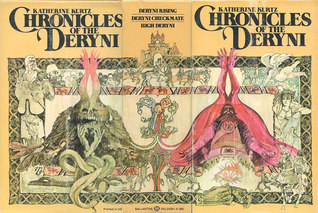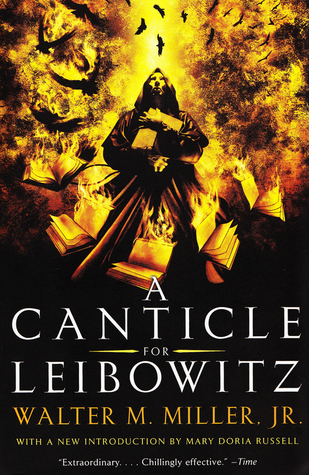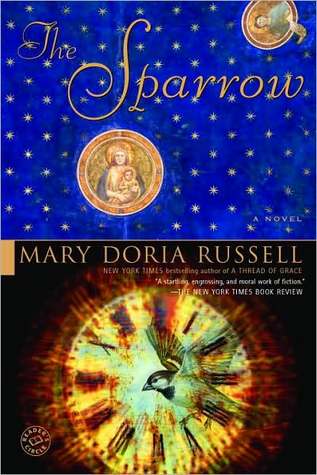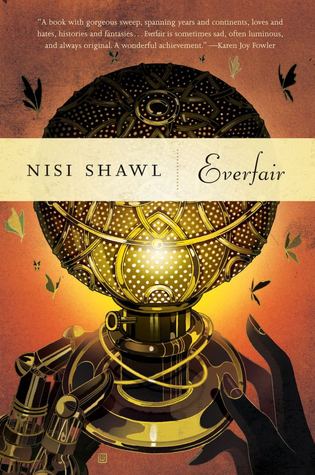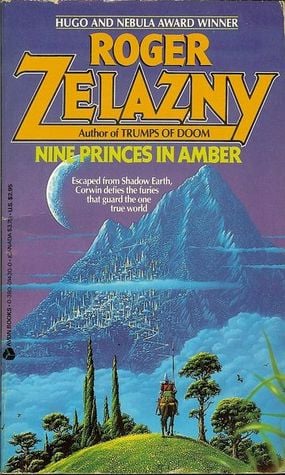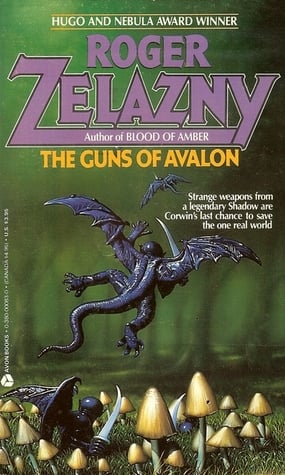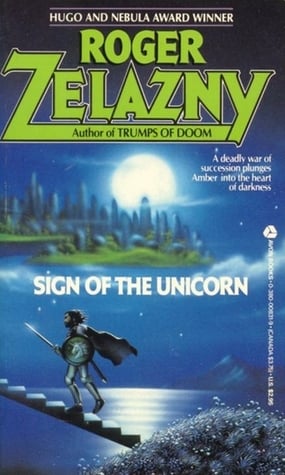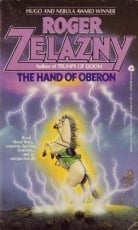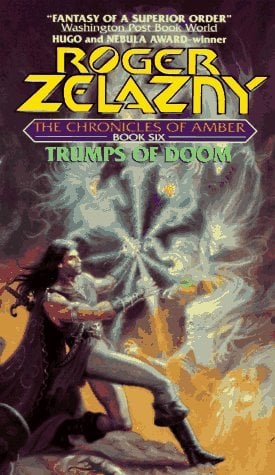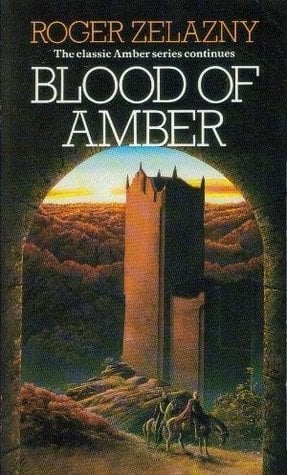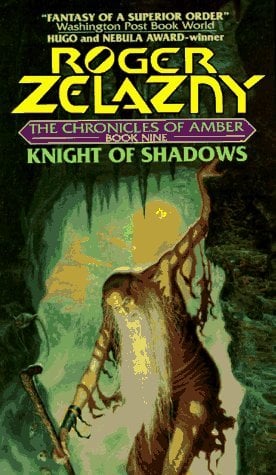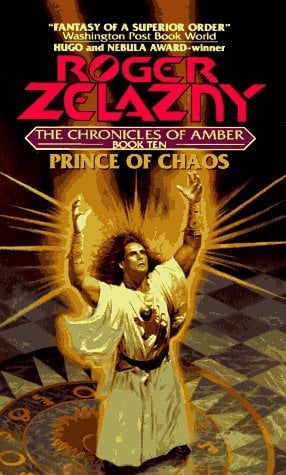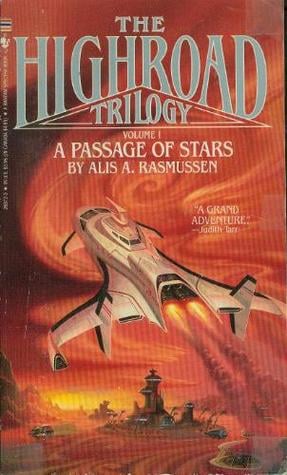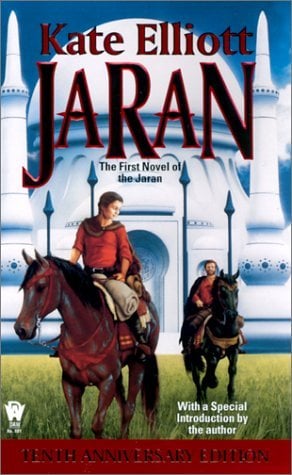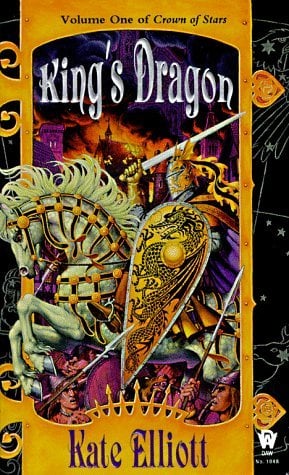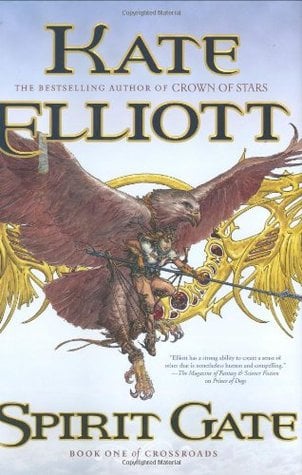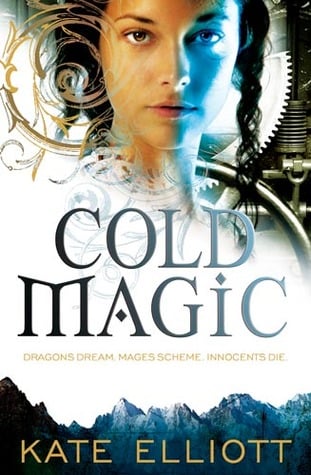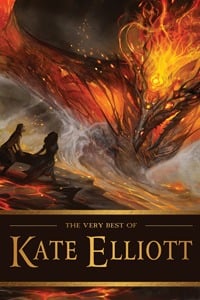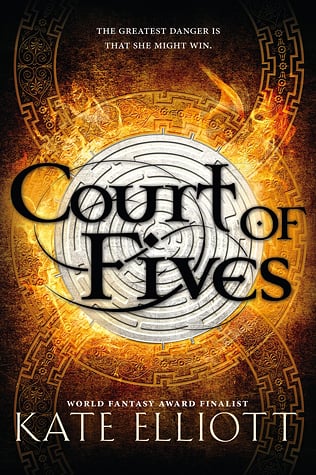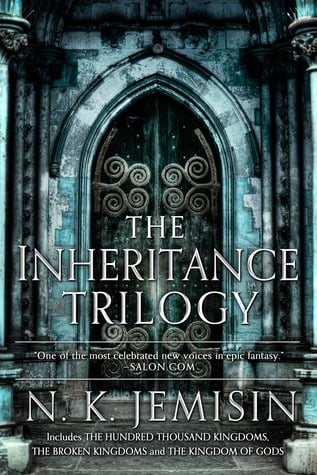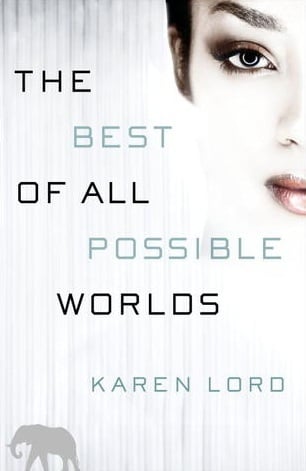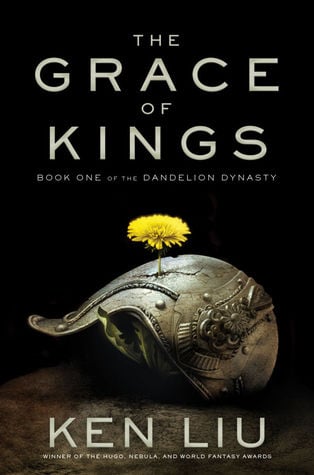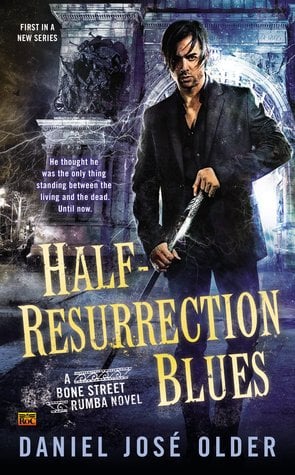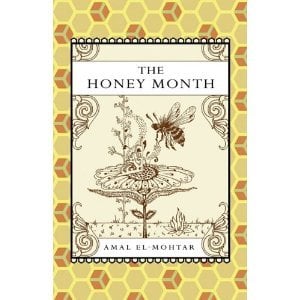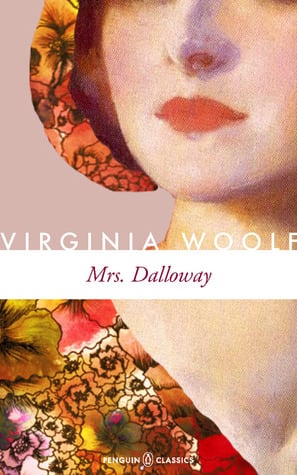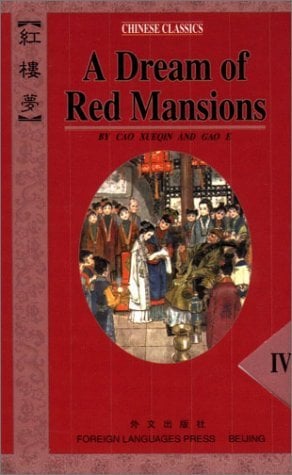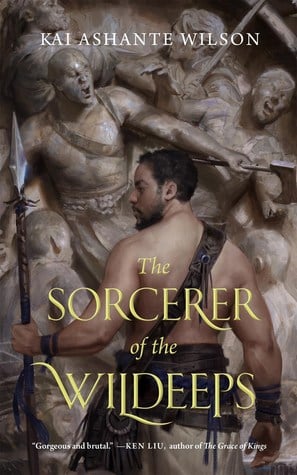TRANSCRIPT:
JB - Each one is a Story. Each one is a life.
*Intro Music*
JSM - Welcome to Cabbages & Kings, the Podcast for readers of Science Fiction & Fantasy. I'm your host, Jonah Sutton-Morse.
My guest this episode is Jenn Brissett, she's a writer artist, former bookshop owner and web developer. her debut novel Elysium, in addition to being one of my favorite books from last year, received the 2014 Philip K Dick Special Citation award, it was a finalist for the 2015 Locus Award for best first novel & placed on the honor list for the Tiptree award. I found it wonderful, I found the structure very interesting, I found the ways that it played with notions of reality and also gender and the constant characters shifting gender & shifting settings really wonderful. It was a tough first read for me, I was kind of OK on it, and the more I have thought about it since I finished it, the more it's really grown on me and I've really enjoyed it, so thank you for that.
JB - Thank you, thank you.
JSM - I tend to start by asking my guests how they got into Science Fiction & Fantasy and Speculative, and how much they read other things, my sense is that you are a lot more omnivorous than I am. Where did your reading come from and what are you reading now?
JB - Oh boy, well let's see, I've always been a reader, I have a difficult time reading so it's always a challenge for me to read, but I've always read a lot and growing up I don't think there was, they really understood that kids needed guidance, in their reading *laughter* so I mean I grabbed a lot of stuff that was, y'know, probably not appropriate for me to read but um I think from y'know picking up all kinds of crazy books, because I grew up in Cambridge, MA and at the time there were just a lot of bookstores there, and I would find myself in a corner, a dusty corner with a pile of books trying to read stuff, and it's not that Science Fiction wasn't of interest to me, but I just wasn't reading it and I really didn't have any guidance in it and I just read a lot of other kinds of stuff, sometimes silly stuff, but as I got into college I started to figure out that I was a little bit behind because all of the other kids had reading lists in their summer so they had read Moby Dick and all this stuff and I had not read any of that stuff. So, I started trying to figure out how to read on my own and I was, y'know somehow I got into Dostoyevsky. Do not ask me how!
JSM - *laugh*
JB - *laugh* but I did, I got into that and I started trying to read some of those kind of british classics, y'know Thomas Hardy and all that kind of stuff because I was just trying to figure out how to catch up, and uhm I started reading things like, I mean I saw people around campus reading Malcolm X, so I'm reading Malcolm X, and I was just trying to catch up to everybody. I had a friend on our floor, I was an engineering student, I got my degree in electrical engineering, but there was a kid on my floor who had the Foundation Series, and I'd not, I think I had heard of Asimov, but I really didn't clue in to who he was, and what it was all about, and I asked him y'know can I look at the first book? and he said SURE, y'know he just seemed to like glow, I'm going to introduce somebody to Asimov kind of thing
JSM - yeah
JB - *laugh* and I read the first one, and I was like, I really got into it, and I came back for the second one and he was just glowing every time I came back, y'know the next week I'd come back for and Asimov was actually a professor emeritus at BU when I was there, so I got to see him, ah, speak so now I was like excited to see him speak because I actually knew who he was, so all us engineering kids went over there for it was like the 200th Anniversary of BU and they had this big symposium and huge crowd and Asimov was up there speaking about whatever he was speaking about, it was very exciting but I don't think even then, I mean that might have been my first inkling about SF, but I really didn't clue in to being Being a Writer at all, or that I would write Science Fiction. I guess when it really started to hit me is like after many many years now, I was an engineer for a while and then I cashed out back in the days when you could do that sort of thing, IPO and all that stuff I opened up the bookstore and I ran the bookstore for about three years and when that finally went away, in a very y'know *laughter* not fun way, because the economy and my life was somewhat destroyed, I had to start doing something with my life and I started writing, because it was really, to sort of stay sane. And I was really just confused for a number of years after the store closed and I would just get up at night and just start fiddling around with some stories, fiddling around with different things, not telling anybody I was doing it, oh my gosh *laughter* y'know it was just really, really bad stuff but it was really, it was getting stuff out of my system, and um around, I guess it was 2006 when Octavia Butler died, it was like this huge wakeup call, it just, y'know, meaning when I heard Amy Goodman announce that she had passed away, um, I, I, just shot straight up out of bed I was sleeping kind of listening to the radio and sort of sleeping in the morning and I was just floored, I just, and it that really made everything a lot more serious, and it sort of it was the, maybe the jerk that I needed to realize that y'know what, I should write, if I'm gonna do this writing thing than I should at least take it seriously and see what I can do. I started doing all the things new authors have to do like brush up on my grammar and I started taking all these books out of y'know used bookstores or whatever to really help y'know improve my writing, those kind of writing improvement books I went through so many of those things, I did them diligently I got my notebook & I really, really kind of cleaned up the way I wrote & started investigating the science fiction world, which I didn't know really that much about I was more of a fan and a very distant fan at that I didn't know anything about the field, I really didn't know about who the current people were who were writing, I didn't know anything, I really was just completely new. And I started listening to podcasts, because they were kind of new and um, and I listened to this podcast called Adventures in Science Fiction Publishing I think I got into it just because of the name, and they seemed to have a focus on new writers, and, ah, one summer when Clarion was having this crazy list of writers going to be the teachers, I think Neil Gaiman and James Patrick Kelly and Mary Ann Mohanraj and oh gosh I think Nalo Hopkinson and Justin Ryman, I mean it was just like this crazy list of people who ... and everybody in the world applied, including myself, and of course I did not get in, um, I've never gone to Clarion, I've applied 3 times, have not got in, that's fine *laugh* but, that summer Adventures in SF Publishing interviewed every one of the writers that taught at Clarion at the end of the week
JSM - Interesting
JB - So you got to hear them, what they had to talk about in the class, and it was like, oh, I'm totally going to listen to that if I can't go, I'm gonna at least listen, so I listened to all of them one by one, and the person who really energized me was James Patrick Kelley, I mean he's just full of energy, and just so enthusiastic and just really had all these great things to say, and then he mentioned that he was teaching at this place called Stonecoast, it was like an MFA program, and I said an um by then I was like, what could I lose, I mean I applied, it's the only graduate program I applied, I had no intention of getting a master's in anything, but I figured why not apply, y'know, and um I got in *laughs*
And lo and behold, James Patrick Kelly became my mentor, and I started writing seriously then, and Elysium ended up being my master's thesis, so about two years after that, y'know I had a full novel
*interstitial music*
JSM - It's so interesting ... partly ... it's amazing to me just to hear you say it & kind of the the string of events that led there, but it's also interesting as I talk to more people about how they got interested in the genre or as you hear writers tell their stories y'know the story about oh I've been writing since I was ... since I was six, I've always been ..
JB - yeah
JSM - It's fascinating how many different stories everybody has.
JB - I was definitely not one of those that said oh by 11 I knew I was going to be a writer & I was studying, no that was not me. *laugh*
That was completely not me.
*interstitial music*
JSM - There's this ongoing off and on discussion about Canon and what it means to have a Canon & how to find a Canon and the ways that Canons are confining and
JB mmm
JSM - Assert power hierarchies and it's interesting that it sounds like part of what you did especially with just general reading when you got to college was like what are the books I am supposed to have read & the weight of that, do you feel that either with SFF as you're writing in it, or do you feel it generally,
JB - Very, very good question actually, um because definitely I felt it in my early 20s, that's like I have to catch up feeling, and I just felt so behind, and all I was doing was trying to figure out what I should read, and in engineering school they don't exactly encourage you to read, but I still really wanted to do that.
because I really just felt like I couldn't have a decent conversation with another educated person if I didn't know, and I was missing out on jokes, or something y'know because people were making references to things & I was like I don't know what they're talking about.
So I definitely felt that pressure in my 20s. And then past a certain point I started reading stuff on my own that I just, that weren't part of "oh you should know this book" kinda stuff, they were stuff that was just wanted to read, like I wanted to read Toni Morrisson & Gloria Mailer at that time, so I was reading that kind of work. and then after a while I started to realize that I was getting past people who had y'know read the quote unquote Canon but just stopped.
like they read what they were supposed to and then they were, y'know they were done, and I kept going. and I, I find reading to be very enriching of my life, like a book I read like 20 years ago, something will happen in my life and something about that book will sort of put it into focus, so reading for me is very very almost spiritual experience and I'm so, I'm saying this in that when I got into Science Fiction yes I did feel a pressure to sort of read whatever the science fiction Canon is, and I quickly got over that um, because I realize that it was the same thing, that I was feeling with mainstream fiction. that the Canon and what people are sort of saying "you have to have read this, you have to have read Heinlein, you have to have read all this guy and that guy" um, it's not, it's just none of it is true. I think it's helpful to just read what you like, read what you enjoy,
JSM - You mentioned reading being almost spiritual for you, does the, do you care physical books, electronic books, I'm going to assume based on having owned a bookstore that you're probably a physical book person, but does it matter to you? are you an audio book person?
JB - Oh I'm definitely, I fell into audiobooks a couple years ago, because I had bronchitis, when I had bronchitis I couldn't physically read and so I started listening to audiobooks because I couldn't sleep either so I was up 24/7 lying there with fever and I listened to so many books, I mean yes I listened to all of the George R R Martin
JSM - *laugh*
JB - The Fire and Ice stuff, but I listened to Don Quixote, I listened to, I just really long, long books um, so I'm really, I got into audiobooks, I'm sort of peeling away from that these days, physical books I do prefer, I haven't, I'm able to read articles and short stories on my tablet, but other than that I really have a hard time writing long, reading longer pieces electronically. I do use my Tablet for my comic books, and I've been getting back into that which has been really great, there's a lot of interesting stuff going on with graphic novels these days.
I guess I go back and forth and in y'know each medium for different things sort of person, I'm not like religious on which medium ohmygod if you don't give me a physical book I will scream, I'm not really that firm on anything like that.
JSM - OK, Well let's move a little bit to narrative structure. When I mentioned that I was going to be interviewing you I got a question about this, and I grew up on the Epic Fantasy of the 80s and 90s in which a young farmboy is Chosen by Destiny
(JB - Oh god)
JSM - and goes to a place and collects an object and he confronts the evil, and then y'know everything is better, or at least that's where the story ends and who knows whether everything is better or not.
JB - The Hero's Journey,
JSM - Yes, over and over and over again, endlessly.
And that means that when I think about plot and structure I think about, getting from point A to B, and stories being about kind of the way the person is moving in the world. There are clearly lots of other ways to do that,
*laughter*
Elysium had a very different narrative structure, and how do you think about structure, how do you try to construct it, how do you read it, ... help me out here on getting out of my point A to point B framework and thinking about other ways to approach the books I'm reading.
JB - Well, I mean definitely that is the straightforward narrative structure is very popular because it's the one we know, it's the one the story that we're told when we're kids, Hansel and Gretel, all that kind of stuff, classic stories that just you know plot plot plot, you know what's happening like you just said. But, structure, a narrative structure is something that I like to play with because it can mimic what you're trying to say in the book. And give it much more texture, I mean I don't sit down and say I'm going to go play with this narrative structure now, I try to think of the story first, what it is that I'm trying to say, and the structure follows the story, so in the case of Elysium, and keep in mind this was my Master's Thesis, and I had my mentor at the time for my Master's was Liz Hand who was really just superb, and what she was really great about was not telling me that what I was doing was nuts, because really really it was, but the structure of Elysium was about describing what a disaster is, meaning I'm kind of um simplifying it to just sort of be able to explain it, but when you think about a disaster, when I see a mass grave and I hear about a mass grave, I mean it's a horrible thing, and y'know like when you had the Iraq war and you see the numbers, just see numbers of people who are dead, give me a hundred thousand, two hundred thousand, a million and it's just numbers, but each one of those numbers is a story, and is a person's life, I mean I wrote a very early story, um, called Nasmina's Black Box, which was built on sort of a Haiti situation and a massacre in Haiti, um it's not really Haiti, it's a fantasy island I created but the idea that within that mass grave, mass destruction, great mass of people who are gone, each one is a special unique story, and they have a beginning middle and end, that person in there, and now you just multiply it by 10, by a hundred, and now you see that the pile of people takes on a different texture it's not just numbers now, so when you look at Elysium, I'm telling yes the same story over and over, but this is one big disaster, one big horrible thing that has happened, and I'm telling y'know the story of ... they keep losing each other over and over, but they're different people, but it's the same story and, I mean when I was thinking of Elysium at the time I didn't even realize it, but I was really kind of thinking about 9/11 a little bit because that was still in my system, I was here when that happen and it was just a horrible, horrible thing and you see all these missing posters all over the place, and each one is a story, each one is a life that is gone, or people who's relationships are destroyed their whole family structure because somebody is gone, and you tell it over and over and over again, and so when I looked at the narrative structure for Elysium, I realized that I needed a spiral structure, to kind of give it the texture that it needed, to really explain what this disaster was that happened in this book, so that's why I chose that structure, now um, you can do all kinds of different y'know there're braided structures, there's y'know cyclical structures, there's all kind of stuff that you can do but I really, I mean to just say I'm going to just take a structure and play with it is not really what I do. and I mean I guess there's a real misconception out there that "Oh Jenn is just playing with...", no that's not what I'm doing here, I mean I really, I think of writing period, but y'know writing SF: this is an art form. This is a craft and it's an art form and it's a means of expression. Yes there's entertainment to it, there's entertainment to any kind of art that a person, an artist can do, but I mean this is my life's work, this is what's important to me, I'm trying to express things, I'm trying to say things, supposedly you only get one chance, so the idea of just sort of playing around is not really what I'm doing here, and so when I think of messing with y'know narrative structure I'm not messing with it, I'm really taking a look at the landscape of the piece and seeing how I can carve something meaningful out of it.
JSM - The thing that I pick up on and um a couple of the reviews I read described it as kind of ripples, like a stone dropped and then ripples
JB - yes
JSM - But there is near the end there is the separation between Antoine and Adriane and it's like we're moving towards that separation but we get the ripples and echoes of that separation told over and over again as a way I think maybe to sort of ... well, I guess it does a few things because it certainly impacts the, or heightens the emotional impact when we see that separation but I'm also thinking about your each one of those losses is a loss and a story and that we get a lot of separations and there are some real similarities between them and some ways that they're kind of universal but also some ways that each one of them is very very particular and specific
JB - Yeah you totally get that,
JSM - I am amazed that you, it's I'm thinking through it out loud because I hadn't really made all of those connections until you kind of described it and it's fascinating to me ... as I think a reader and a fairly unsophisticated reader in a lot of ways, or someone who's still learning this, it's amazing to me that you're able to sort of take the event and the theme and figure out the structure and the way to make that structure impact the reader
JB - well, thank you for saying that, um, y'know I mean there's a lot of great writers out there that are doing, not like I'm some genius or anything to figure this out one of my favorite authors in the world is Jefferey Ford, I just think his work is just remarkable, in the SF field, I mean SFF, anything actually! He can do just about anything, I don't mean to limit him in that respect, and Ursula Le Guin, just fantastic author, but using using narrative structure but also landscape so that the physical space to sort of help to echo what it is that you're trying to say, is something very, a lot of authors have played with. I think the only thing that kinda made my book sort of stand out, was that I sort of introduced the idea of the computer code in there and using code as prose
JSM - I loved that
JB - Thank you!
JSM - I thought it was wonderful
JB - It was a very scary thing to try because a lot of people just see the code and then they just blank out it's like I'm not even going to try to read that, and it's like well to sort of try and push that level and sort of say y'know code is not that scary, it's sort of fun. But um, there's a lot of authors out there who really played with these ideas and honestly that's what I'm, I'm sort of following a tradition in this way and trying to push the edges that are in there.
*Interstitial Music*
JSM - Last Episode, Jenn shared a book that resonated with her - Their Eyes Were Watching God by Zora Neale Hurston, and I’d encourage you to go back and listen to that if you haven’t already. To close this episode, I’m going to start a new occasional segment that I’m hoping listeners will be able to contribute to. I’d like to tell a story via books, in this case, a story about faith and religion. I still distinctly remember the first time I noticed religion directly addressed in a fantasy novel: in C. S. Friedman’s Black Sun Rising, the priest Damien Vryce vouches for his companion, a man he doesn’t truly trust yet, and indeed in the moment it’s not clear that Damien’s choice in the right one. But for me, the scene was the first time I saw a piece of my own life, a church and a member of church turning for guidance to an ordained minister when she is at a loss to understand how to be in the world. I’ve since encountered other times when fantasy stories picked out recognizable religious moments. If Black Sun Rising reflected my understanding of a faith community as a place to turn when you’re feeling lost and alone, Katherine Kurtz’s Deryni novels showed me pomp and circumstance and also priests who turn to words, and to the rules and ceremony of their tradition to understand the world and their place in it. In A Canticle for Liebowicz and The Sparrow, I’ve seen religious institutions transformed, and different members of their community participating in different ways, whether with fervent faith or simply because the Church is, as it has been for many people I’ve known, a source of community.
Most recently, I teared up when reading Nisi Shawl’s Everfair when the characters gathered together singing a hymn. It’s been years since I attended church, but I still return to the hymns I grew up with as a source of comfort, and seeing that manifested in my reading was an emotional moment.
To varying degrees, the Christian Church, as a message of faith, an institution, a set of words and practices, and a source of community, has been an important element in my life. I can see that story in key moments of resonance with books. The institution and the people who are called to it, or bend it for their own ends in Kate Elliott’s Crown of Stars series, or Katherine Kurtz’s Deryni novels. The faith and community it offers seen when the supplicant approaches the priest in Black Sun Rising, and the balm to my spirit when I set down Everfair, closed my eyes, and sang “There is a Balm in Gilead”.
*Musical Interlude, cut off abruptly because I am bad at editing*
If you have a story that you can tell with books, please let me know. This was a particularly personal story that’s been bubbling inside me for a bit, but I’d also love to hear about the books that defined or redefined the genre for you and how that has changed. Get in touch if you’ve got a story that’s well told through the titles on your shelves.
